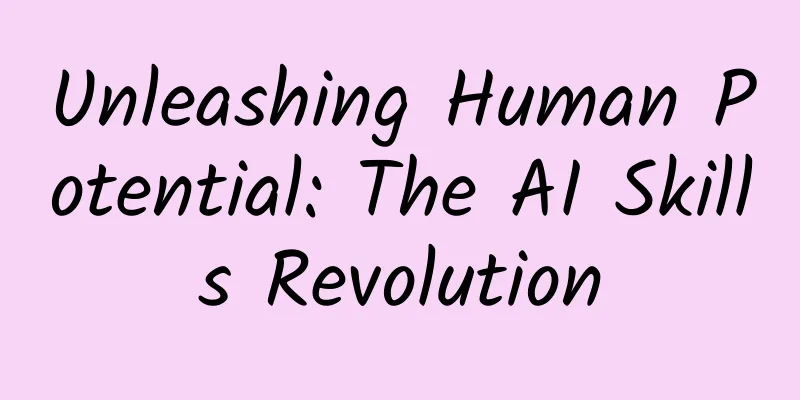Unleashing Human Potential: The AI Skills Revolution

|
The world has entered an era of intelligence driven by artificial intelligence (AI). Some people are concerned about AI technology and its impact. But what if AI does not replace humans, but instead sets off a skills revolution and redefines our relationship with work? Workday’s new study, “Unleashing Human Potential,” shows that the majority of employees (83%) believe AI will make uniquely human skills even more important. As AI’s uses increase, nearly all (76%) crave more human connection. This means that individual value will be more important than ever. It is difficult to achieve this vision by an individual alone. Creating a better future requires collective efforts. Visionaries should actively accept artificial intelligence, promote social progress, innovate development models, stimulate individual potential, and transform the industrial landscape. Imagine a scenario where AI not only automates tasks, but also frees us to develop the core competencies that drive social development, such as innovative thinking, management skills, knowledge acquisition, and trust building. This marks the beginning of a transformation of capabilities. Together, we can make this vision a reality. AI enhances human creativity. Research shows that 83% of people believe that artificial intelligence will enhance human creativity and create new economic value. In an AI-dominated work environment, creativity has become one of the most valued human abilities. View AI as a collaborative ally rather than a creative threat, one that can take care of routine tasks and unleash our creative potential. Artificial intelligence not only saves time, but also generates innovative thinking, discovers potential information through data analysis, provides unique insights, and effectively stimulates creativity. Human-computer interaction will usher in an era of innovation, accelerate breakthroughs, and promote industry reform. AI empowers people-centered leadership Artificial intelligence is reshaping managers’ functional positioning and team collaboration models. Research shows that intelligent transformation will prompt managers to focus on strategic planning while strengthening employees’ collaboration skills with intelligent systems. AI helps improve management efficiency, and automated processes save leadership time, covering performance evaluation and development planning. With the help of AI assistants, managers can gain insight into development trends, predict potential risks, and optimize routine operations, thereby focusing on strategic deployment and vision design and improving work efficiency. It steps out of daily affairs, focuses on the macro, and drives the team to achieve its grand vision. Artificial intelligence promotes the transformation of management methods towards humanization and provides supporting tools for building employee sense of value, enthusiasm and a culture of coping with complex work. AI fosters a continuous learning mindset More than 80% of professionals believe that artificial intelligence is reshaping workplace competency requirements and emphasize the importance of lifelong learning. However, the focus of training is not only on mastering new technology processes, but also on how to efficiently use AI technology itself. Mastering the operating principles, interactive skills and innovative applications of AI can effectively improve your abilities. The AI platform provides unprecedented convenience for learning. In the current era of rapid technological development, people who are good at using artificial intelligence and taking it as a research object are more likely to succeed. Mastering AI technology is like mastering the language of the future. This ability will open up new opportunities for individuals, fill the gap in technical talents, and ensure that they maintain an advantage in the competition. Building a trustworthy and responsible society The idea that technology can reshape the foundations of society and help resolve the trust dilemma currently faced by institutions is a realistic possibility. Workday firmly believes that artificial intelligence will usher in a new era of openness and trust, making the operations of organizations more visible and open to the public. Empirical research shows that as many as 90% of respondents believe that artificial intelligence can significantly improve management transparency and accountability mechanisms, reflecting the public's strong expectations for organizations that uphold fair ethical principles and make clear and objective decisions. The document link will be shared to 199IT Knowledge Planet. Scan the QR code below to view it! |
<<: What would happen if the Samsung Note 7 had not been recalled?
>>: "Hyper High-Speed Rail" prototype test was successful and looks sci-fi
Recommend
Subvert your cognition! Brain damage makes them vegetative? They can't speak but can cry? In order to wake them up...
The short drama that has been flooding the screen...
If you don’t know how to do attribution analysis, it’s no wonder that your channel conversion and user growth are getting worse and worse!
The APP has been developed, the advertising has b...
Liu Jiangfeng jokes that he is in danger. Can the new S1 change the world's view of Coolpad?
Just three years ago, "China Cool Union"...
Why can sausage cucumber operate touch screen?
As people continue to develop the functions of sau...
It’s better not to eat this kind of melon!
Summer is the time when a lot of fruits are on th...
Emergency flood discharge at dawn! Extremely heavy rainstorm hits Shenzhen, please take precautions!
Typhoon Haikui landed in Taiwan, Fujian and Guang...
How do computers send and receive information?
How do two computers communicate with each other?...
Why are planetary orbits elliptical? History of the development of the theory of planetary motion
A few years ago, I casually asked an astronomer: ...
What are the functions of the Guangzhou check-in mini program? How to create a check-in app on WeChat?
A few days ago, a boss called me and wanted to mak...
SEO training case: Shanghai office leasing
Originally, the customer only wanted to optimize ...
Tencent Advertising advertiser account opening qualification requirements!
Enterprise account opening qualification requirem...
Is boiled water more than 16 hours old like a "chronic poison"? If you make these 5 water drinking mistakes, you may get sick!
As the saying goes, "Food is the most import...
How can cash loan products effectively improve conversion rates under high traffic costs?
To improve conversion rate is to improve user exp...
2017 will be the first year of borderless TVs, and shipments will increase dramatically
4K, which is detailed and visible, has become the...









